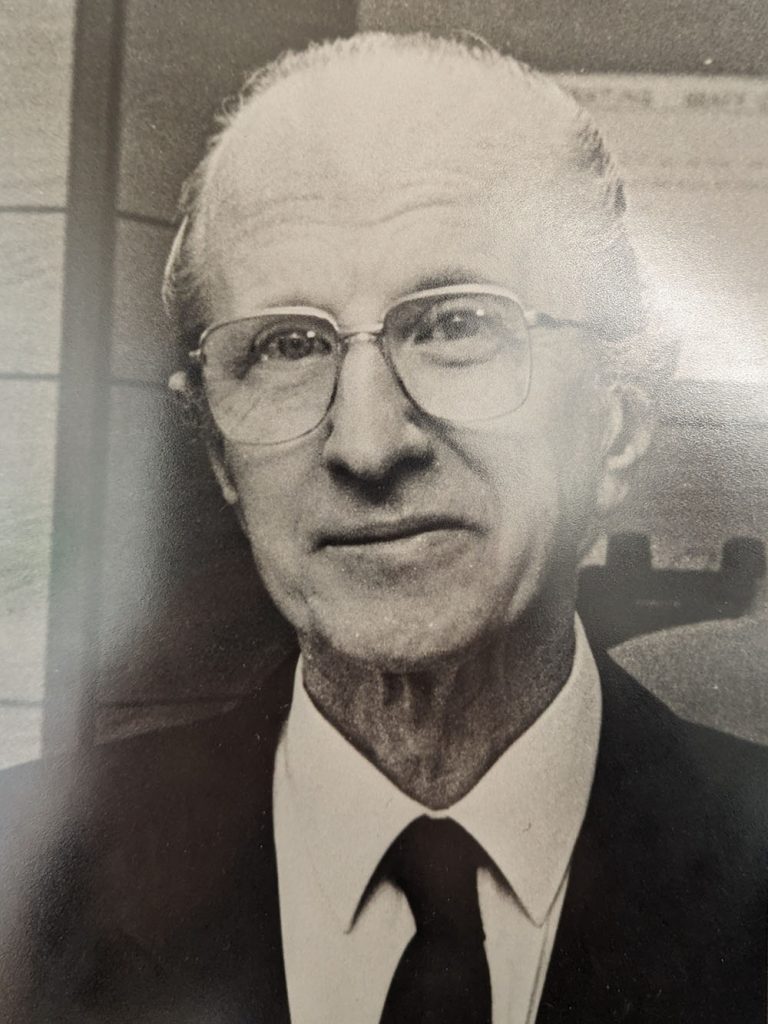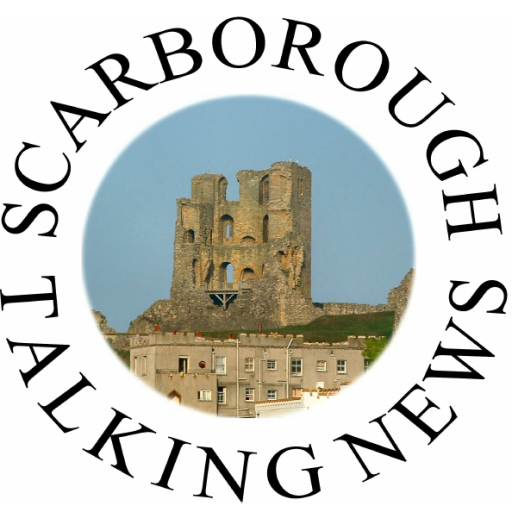
Scarborough Talking News
Founder Chairman: 1982-1994
History of Scarborough Talking News
The Talking News nationally was founded in 1970 by a librarian called Ronald Sturt. He visited Sweden on a study visit and heard about their talking newspaper called Arosbandet. Upon his return he managed to enthuse others and so in January 1971 the first Talking News was delivered in Cardiganshire. There are now 400 some across the UK.
The Talking News service in Scarborough was founded in 1982 by John Dean of Dean’s Gardens Centre and, in fact, his daughter continued to read for us until her death just a few years ago.
We started our recordings in a damp semi basement room in Allat House, now demolished. We had cumbersome machinery to record our voices and posted the recordings out to listeners on CDs. We now record on USB memory sticks in our Studio at the Yorkshire Coast Sight Support (YCSS) Centre on Dean Road, in an attic up two flights of steep stairs – so we have gone up in the world ! We can’t win – either a damp basement or a freezing or boiling attic depending on the season. We do have a heater but in the summer we can’t open the skylight because of the blooming noisy seagulls which can be heard on our recordings sometimes!
Mary Grunwell
April 2024
The Development of Talking News Services: a brief history
Talking Newspapers have been around for a long time, providing a source of local news to visually impaired people thanks to a small army of enthusiastic volunteers who meet regularly to record items from local newspapers.
The story goes that in 1968 Ronald Sturt came across a Talking Newspaper while on a visit to Sweden. He was so impressed that when he returned to Aberystwyth, in Wales, he recounted his experience to anyone who would listen. Eventually in 1969, the local Round Table donated the proceeds of a Donkey Derby and the First Talking Newspaper was about to become a reality. With the help of a few influential enthusiasts, including a blind reader who managed a newspaper depot, the first tape was produced in January 1970. Thanks to recognition by the then Head Postmaster, the convention was agreed that items labelled for the blind would be treated as first class mail but would require no stamp. This convention still exists and saves local Talking Newspapers a small fortune every year.
Found across the length and breadth of the United Kingdom, many “TNs” meet weekly to produce a news recording and fortnightly, monthly or otherwise to produce a magazine. Funded by donations, the TNs provide the recordings free to visually impaired listeners. In many cases, local newspapers, and in some cases local newsagents, provide copies of the local newspaper free and a variety of organisations from local councils to churches, scout halls to community centres, make their premises available to the “TN’’ to enable recordings to take place.
With Talking Newspapers throughout the United Kingdom, the Talking Newspaper Federation is a source of information to its members as well as providing a “voice” for the numerous groups who meet on a regular basis to record, copy and distribute local information. While some of these Talking Newspapers are very small, with one or two people and several listeners, others are very large with 60 or 70 volunteers reaching an audience of 200-plus listeners on a weekly basis.
The majority of Talking Newspapers have no employees, relying on grants, fundraising and donations for their survival. Talking Newspapers do, however, owe a great deal of their success to the goodwill and generosity of an army of volunteers, some of whom have been with “their” Talking Newspaper for over thirty years.
In the early days of Talking Newspapers, newspaper and other print editors were reluctant to give permission for items to be put on tape. Many feared this would affect their sales figures. The argument put forward that the people who listened to the tape were unlikely to buy newspapers anyway cut no ice. Thanks mainly to the efforts of the Scottish Talking Newspaper Group, founded in 1985, this situation slowly changed. Combined with the introduction of free magazines in supermarkets early in 1990, complete with black spots beside articles which Talking Newspapers could freely use, brought about the final change of heart. Today modern Talking Newspaper editors are spoilt for choice.
Many Talking Newspapers supplement their income by making recordings for other organisations. Whether it is information sheets for the Local Council, Reports on Annual General Meetings for Housing Associations or the Church Magazine, the majority of the volunteers working with Talking Newspapers are more than happy to make their contribution to the business of keeping the visually impaired in touch and helping them to access information the majority of us take for granted.
If you would like to know more, are interested in helping our work either as a volunteer or by making a donation, please get in touch.
